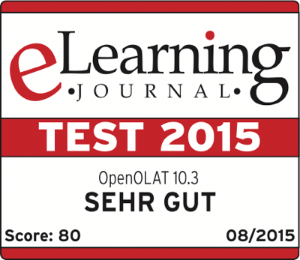OpenOLAT derives from OLAT which means "Online Learning and Training", and is an open-source learning platform. In 1999 OLAT was launched by the Computer Science Department at the University of Zurich (UZH). In September 2000 the OLAT team at that time won the MEDIDA Prix. This as well as OLAT's success opened new possibilities: In 2001 the Computer Science Services at the UZH took charge of OLAT, offering professional operation and support as well as further software development. OLAT has been used as a strategic learning platform at the UZH since 2004.
In 2011, the project host changed access to the source. As a result, frentix GmbH initiated the open-source project OpenOLAT, as a branch of the version 7.1 OLAT code.
A learning platform or Learning Management System (LMS) serves to provide learning content, to organize learning activities, and to manage course participants. A LMS assists you in realizing didactic course concepts. You can use a LMS for virtual presentations as well as blended-learning scenarios. Blended learning is a form of e-learning that combines classroom teaching with computer-based learning. Features such as access regulation, group management, assessment tools, or collaborative tools (forum, chat, etc.) assist you in organizing an event.
OpenOLAT is not a Content Management System (CMS). Since OLAT means "Online Learning and Training" the main objective is not the creation of learning material. Therefore additional tools should be used when creating or editing larger amounts of learning content. Learning content that has been generated externally can be imported into OpenOLAT by means of standardized interfaces. However, in order to be able to create simple pages in OpenOLAT there are applicable tools such as the HTML editor.

